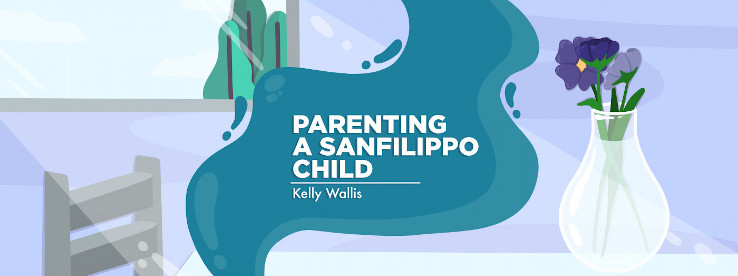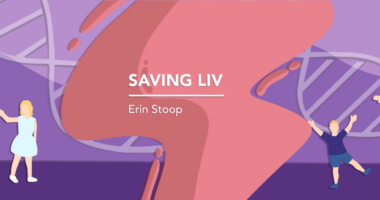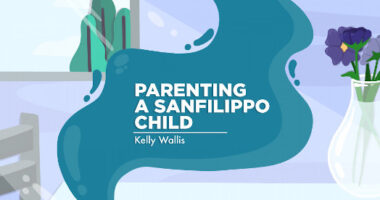What if more people knew about Sanfilippo syndrome?
Why spreading awareness on Rare Disease Day is vital

Rare Disease Day on Feb. 28 is an excellent opportunity to promote awareness of diseases that often receive less attention, research, and funding than more commonly known ones.
My daughter Abby has a rare disease called Sanfilippo syndrome, which sometimes is called “childhood Alzheimer’s” because the symptoms are similar. Abby lacks a specific enzyme that breaks down sugar molecules in her body. Over time, this sugar accumulates until it reaches a toxic level. Eventually, it tears the body down, causing death. There is currently no treatment or cure for it. This is one reason Rare Disease Day is so important.
Imagine a world where Sanfilippo syndrome was not a rare disease. I could meet someone new and tell them my daughter has Sanfilippo, and they’d instantly know what I meant. It is certainly a hope I have for the future. So many lives would be positively affected, and possibly even saved, if this were a reality.
Possible effects on the medical community
In the medical community, if Sanfilippo weren’t rare, it would lead to much more research to discover therapies and treatments to alleviate the disease’s horrific symptoms. It could lead to the approval of drugs to help these children. Insurance companies would be more likely to cover the cost of treatments. And the ultimate benefit would be finding a cure.
On parents and caregivers
For parents and caregivers, more awareness would offer greater peace of mind, because helpful resources would be more readily available. Research would produce findings about the most helpful treatments, which would allow parents and caregivers to be proactive about treatment. That’s better than what we must do now, which is to wait for our children to show signs that they are uncomfortable and then administer medications we are uncertain about.
With more awareness about Sanfilippo syndrome, parents and caregivers would have less explaining to do. Currently, every time I tell someone that Abby has the disease, I must explain what it is and how it affects her. This would be a small consolation for parents, but it would still be nice.
On society
People seem less afraid to talk about diseases they already know about. With awareness, they would be much more likely to donate. Being more aware of a disease fosters a willingness to do something about it.
People are naturally more invested in fighting for a cure when they understand the disease they are fighting. This is important, because it creates a mindset that we’re all in this together.
On children
Finally, it would greatly benefit children diagnosed with Sanfilippo syndrome. Increasing therapeutic options, making insurance coverage easier, and easing the burden on parents and caregivers would all allow affected children to receive more attention and care.
And it would give them a voice. It would make them more visible to the world if more people knew about their disease. These children count!
Consider getting involved
I’ve only begun to scratch the surface. A world where more people know about Sanfilippo syndrome would be a giant step in the right direction. I will be on a mission for the rest of my life to raise awareness about this disease because these children can’t speak for themselves — they need our help.
Please consider donating to the Cure Sanfilippo Foundation to help find a cure. Every penny raised goes toward research, clinical trials, and efforts to raise awareness. Let’s make Rare Disease Day really count. Let’s find a cure together!
Note: Sanfilippo News is strictly a news and information website about the syndrome. It does not provide medical advice, diagnosis, or treatment. This content is not intended to be a substitute for professional medical advice, diagnosis, or treatment. Always seek the advice of your physician or other qualified health provider with any questions you may have regarding a medical condition. Never disregard professional medical advice or delay in seeking it because of something you have read on this website. The opinions expressed in this column are not those of Sanfilippo News or its parent company, Bionews, and are intended to spark discussion about issues pertaining to Sanfilippo syndrome.








Leave a comment
Fill in the required fields to post. Your email address will not be published.